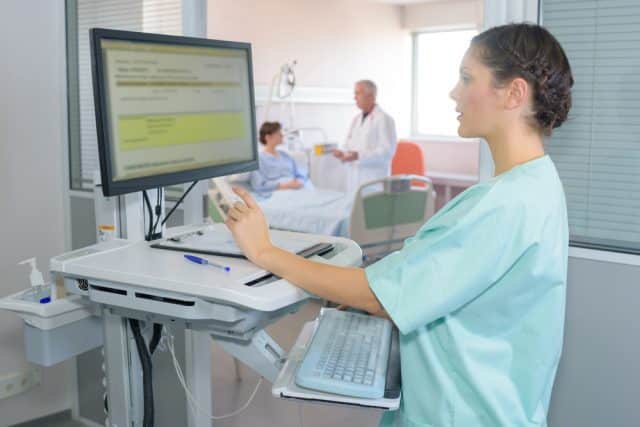Health workers kept from patient care by tech

An overwhelming 99 percent of healthcare professionals want to be free to focus on patient care, but an abundance of technology is taking time and energy away from their core tasks.
This startling statistic is from a new study by Zivver which interviewed over 6,000 employees across the US and Europe, more than 400 of them in healthcare organizations, about their digital communications and workplace productivity.
While investing in a large number of new channels may be perceived as progressive, the myriad of new technologies is disrupting workflows and productivity for healthcare workers. In the last two years, 51 percent of healthcare workers report that their communications channels have increased, with 31 percent saying new comms have impacted their ability to focus and do their best work.
This leads inevitably to errors, in the last two years, 30 percent of healthcare workers say they have sent the wrong attachment in error, 27 percent have hit reply all by mistake, and 20 percent have sent sensitive information via email that they probably shouldn't have.
Email is still the preferred form of communication though, with 88 percent of employees relying on it to get their job done. 83 percent of IT leaders agree that employee email security errors can be reduced with smarter data security, making this a clear focus to improve patient care for IT leaders.
Adam Low, chief technology officer at Zivver, says, "Our research found 99 percent of healthcare professionals want to be free to focus on their core role, but the increasing number of digital platforms they use is compounding their stress, distracting from core tasks, and leading to data protection mistakes. What we also found troubling is the lack of understanding of personal responsibility for computer security: just one in five respondents said they worry about data security. As email remains the most productive and efficient means of communication across healthcare, we must be working toward an effortless fix to ensure security and compliance for the transfer of sensitive information. Smarter, simpler technology with a layer of security will be the most effective way to overcome security barriers and support healthcare workers in delivering the best patient care."
You can get the full report on the Zivver site.
Image credit: photography33/depositphotos.com
